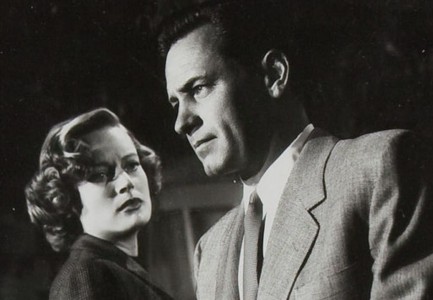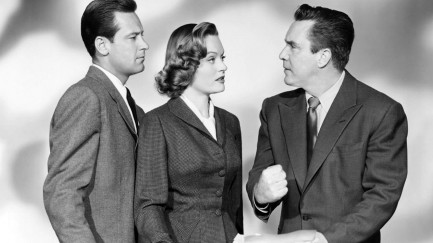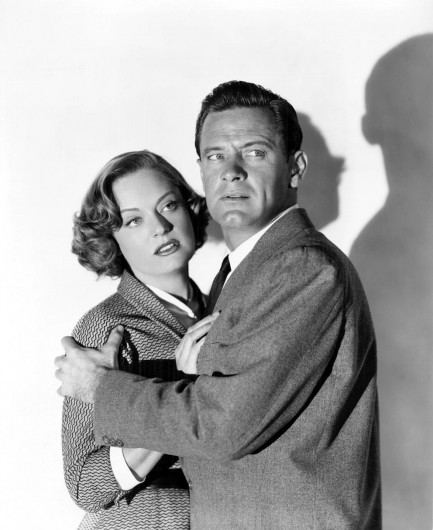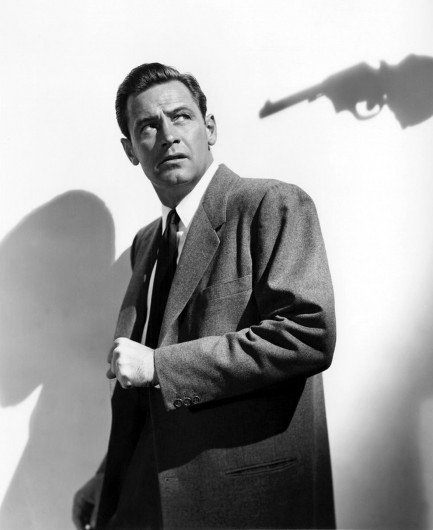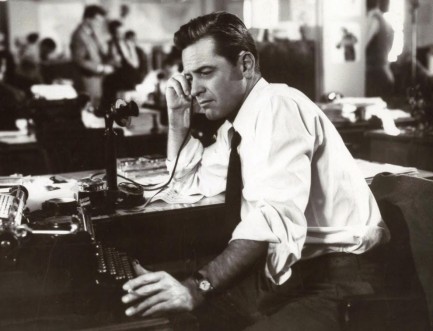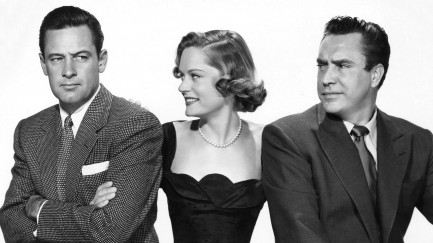| Vintage Pulp | Apr 14 2021 |

Humphrey Bogart meets an immoveable object.
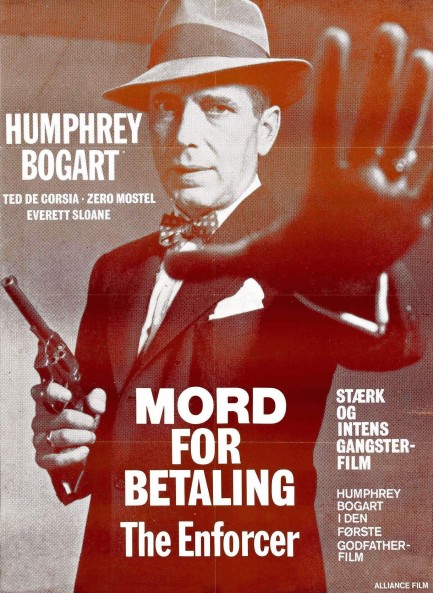
If you haven't seen Mord for betaling, better known as The Enforcer, you may want to add it to your queue. In addition to featuring yet another excellent Humphrey Bogart performance, it's a historical curiosity. Central to its plot is Murder, Inc., a group of killers-for-hire used by organized crime gangs. Murder, Inc. contracted anonymous killers for mob hits, leaving police with bodies but no motives and no suspects. In fact, the terms “contract” and “hit” were invented by Murder, Inc. The Enforcer is also of historical significance because showings featured a foreword in which Senator Estes Kefauver, chairman of the U.S. Senate Committee to Investigate Organized Crime, talked to the audience about the mafia, which the general public was just learning about at the time.
In the film Bogart plays a prosecutor who has been trying for years to bring down a crime boss named Albert Mendoza. When a witness dies, Bogart becomes aware of the existence of Murder, Inc. (though they aren't named that in the film), which to him seems like an impossibly bizarre idea. But he keeps uncovering more traces of the group until he finally believes. The rest of the film deals with his efforts to convince (or coerce) one of the cartel's members into being a witness in order to fry Mendoza. There are some twists and turns that force Bogart to shift gears more than once, and all of this is told in flashback, after the death of his stool pigeon, which happens in the first reel to set up the plot.
As we said, Bogart is solid as always, and he's helped greatly by Zero Mostel, who's quite good as a shaky potential witness. As far as the film as a whole goes, most vintage cinema fans consider it middling Bogart, but that's plenty good enough to warrant a look. The poster you see above, which we absolutely love, was made for Denmark, where the movie's title means, appropriately, “murder for payment.” We have several other posters for the film you can see at this link, and a cool Bogart promo photo that mirrors the above image, viewable at this link. The Enforcer premiered in the U.S. in 1951 and opened in Denmark today in 1952.
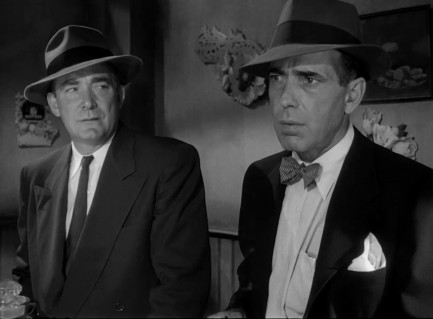 But I distinctly remember being told this was a bow tie-only affair.
But I distinctly remember being told this was a bow tie-only affair. I guess not.
I guess not.| Vintage Pulp | Jan 26 2019 |

Organized crime finally meets its match.
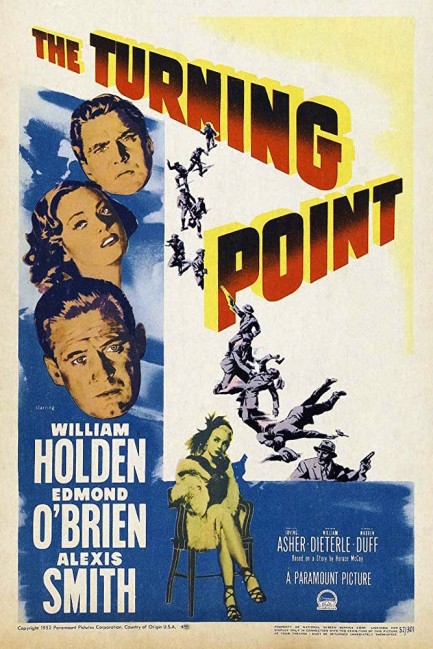
How much does it cost to fight corruption? That's the question The Turning Point asks, and the answer is—everything. Fighting corruption costs relationships, trust, and often lives. It costs reputations, stability, and sometimes public belief in civil institutions, because corruption will destroy everything before being pushed from power—even the structures that made its rise possible in the first place. Edmond O'Brien, William Holden, and Alexis Smith star in this second night offering at the Noir City Film Festival that examines the lives of a prosecutor, his assistant, and a newspaperman, all of whom are drawn into an investigation of organized crime that is far tougher than any of them expected. And they thought they expected the worst.
The investigative body portrayed is presumably modeled after 1950-51's anti-crime Kefauver Committee, aka the United States Senate Special Committee to Investigate Crime in Interstate Commerce, which revealed to the general public that a national organized crime syndicate—popularly known as the Mafia—existed. Before the Committee the idea of the Mafia was mocked by many as a conspiracy theory, but the Committee's conclusions led to the creation of the RICO Act, which today is one of the most useful tools in the federal arsenal for combatting organized crime. The investigation in The Turning Point is on a smaller scale, focusing on a single city, but the idea is the same.
The crooks, of course, don't just stand idly by while they're being targeted by the authorities. Their retaliation comes on multiple fronts and pushes O'Brien, who heads the crime committee, to the point of quitting. But we know he won't. What kind of movie would that be? Does he win? In film noir victory is never a foregone conclusion. Tragedy of some sort is almost assured. But if it indeed strikes, who will fall? Therein lies the tension in The Turning Point. With O'Brien, Holden, and Smith in the leads, the movie is in the hands of confident performers, and what could have been mere pro-law enforcement propaganda turns out to be something more nuanced. Is it a top effort? Not quite, but if you watch it you definitely won't be wasting your time.
The crooks, of course, don't just stand idly by while they're being targeted by the authorities. Their retaliation comes on multiple fronts and pushes O'Brien, who heads the crime committee, to the point of quitting. But we know he won't. What kind of movie would that be? Does he win? In film noir victory is never a foregone conclusion. Tragedy of some sort is almost assured. But if it indeed strikes, who will fall? Therein lies the tension in The Turning Point. With O'Brien, Holden, and Smith in the leads, the movie is in the hands of confident performers, and what could have been mere pro-law enforcement propaganda turns out to be something more nuanced. Is it a top effort? Not quite, but if you watch it you definitely won't be wasting your time.
